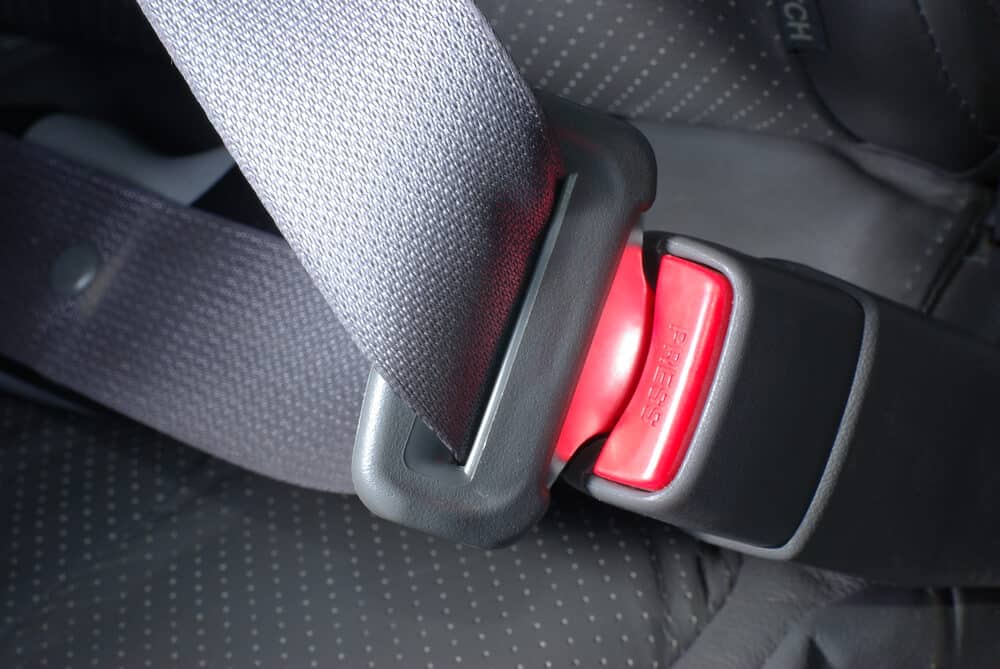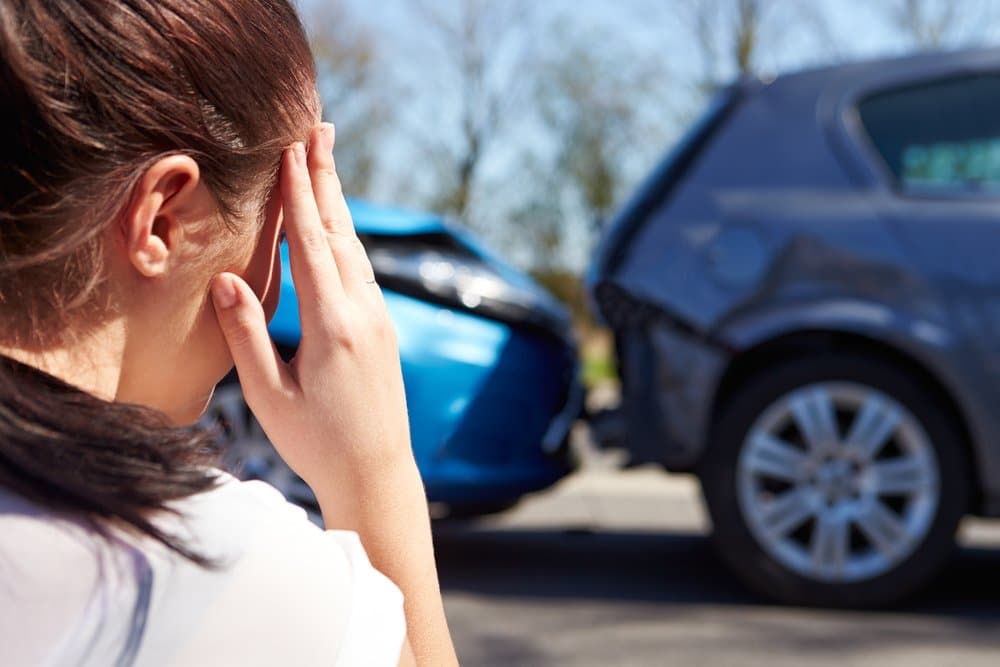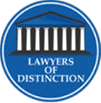What is Strict Liability in Law?

Strict liability laws in Georgia hold parties responsible for damages resulting from their actions or products, regardless of their intent or degree of negligence.
In this post, we’ll go over strict liability, its applications in different areas of law, and how our team at Spaulding Injury Law can help you get the best possible outcome in your case.
How Does Strict Liability Apply to Civil Cases?
Strict liability falls under three categories in civil cases, each with its own unique set of rules and considerations: owning wild animals, engaging in abnormally dangerous activities, and product liability. In these cases, a defendant can be held strictly liable for any harm that results from their actions, even if they did not intend to cause harm or act negligently.
Possession of Wild Animals
Even though most would agree that wild animals should live in their natural habitats, some Georgians have attempted to keep them in domestic situations. However, as we all know, wild animals have the potential for vicious and unpredictable behaviors.
Georgia prohibits the ownership of all big cats (lions, tigers, and cheetahs), bears, wolves, crocodiles, alligators, and venomous snakes. These animals are considered inherently dangerous and pose a threat to public safety if kept in domestic settings.
Georgia law also requires permits for the ownership of primates, certain species of non-native reptiles, and some hybrid animals. The permits are issued by the Georgia Department of Natural Resources and are subject to strict requirements regarding proper enclosures, veterinary care, and public safety measures.
If you own one of these wild or exotic animals and it causes harm to another person or their property, you are liable for the damage. Owning a wild animal is considered an inherently dangerous activity that falls under the category of strict liability in tort law, so even if you did nothing wrong, took reasonable steps to restrain your animal, and had no idea that your animal was dangerous, you are still responsible for any harm that your animal causes.
For example, if your pet tiger escapes from its cage and attacks your neighbor, you can be held strictly liable for the resulting injuries and damages, including medical expenses, lost income, pain and suffering, and property damage, even if you took all reasonable precautions to prevent the tiger from escaping.
Strict Liability for Abnormally Dangerous Activities in Georgia
In Georgia, abnormally dangerous activities are subject to strict liability standards, meaning that people who engage in these activities can be held liable for any harm or damage that results, even if they take reasonable precautions to prevent it.
Abnormally dangerous activities are defined as activities that are not commonly engaged in and carry a foreseeable risk of harm, even when participants act reasonably.
In Georgia, an activity must be uncommon in the community to be considered abnormally dangerous.
Examples of abnormally dangerous activities include:
- The use of hazardous materials, nuclear materials, and chemical materials
- Blasting, drilling, and other activities that pose a significant risk of harm to people or property.
Under strict liability for abnormally dangerous activities, damages can encompass more than just physical damage to a person or property. Lost wages, emotional pain, and other losses can also factor into a settlement.
Let’s say a chemical company in Georgia operates a plant that produces and stores large amounts of toxic chemicals. The plant is located in a residential area, and nearby residents have expressed concerns about the potential risks associated with the plant’s operations.
One day, there is an explosion at the plant, causing toxic chemicals to be released into the air and water. Nearby residents suffer from respiratory problems and other health issues as a result of the exposure. Droves of residents are forced to evacuate their homes, resulting in lost income and emotional distress.
Under Georgia law, the chemical company can be held strictly liable for the harm caused by the explosion, even if they took reasonable precautions to prevent it. The nearby residents can seek compensation for physical damage to their property, medical expenses, lost income, and emotional distress resulting from the incident.
In this example, the chemical company’s abnormally dangerous activity of producing and storing toxic chemicals led to harm to nearby residents, making them strictly liable for the resulting damages.
By imposing strict liability, Georgia law encourages companies to take all necessary precautions to prevent harm and ensure public safety, even when engaging in inherently risky activities.
Product Liability
Product liability is an area of law that holds manufacturers and designers accountable for damages consumers suffer due to their products. Product liability law can apply to consumer goods, medical devices, and industrial equipment. In general, product liability cases involve issues of negligence, breach of warranty, and strict liability.
When it comes to strict liability, there are three general categories of product defects that can result in lawsuits: manufacturing defects, design defects, and warning defects.
Manufacturing Defects
Manufacturing defects occur when a product is not made according to the intended design and result in damage to consumers. These defects can involve defective components or unintended additives, leading to lawsuits, even if the manufacturer did not know the errors.
Let’s say a company manufactures and sells electric blankets. One of the blankets is designed to automatically shut off if it overheats to prevent fires. However, due to a defect in the manufacturing process, the automatic shut-off feature on one of the blankets is missing.
A consumer buys the defective blanket and uses it while sleeping. During the night, the blanket overheats and catches fire, causing serious burn injuries and property damage.
In this case, the defective blanket is an example of a manufacturing defect, as it was not made according to the intended design. Even if the manufacturer did not know about the defect, they could be held strictly liable for the harm caused by the defective product. The consumer could file a lawsuit against the manufacturer for their damages, including the cost of medical treatment, property damage, lost income, and pain and suffering.
Design Defects
Design defects occur when a product is designed in a way that makes it inherently dangerous, even if it is manufactured perfectly. In these cases, the defect is not in the production process but in the product’s design itself.
For example, if a car’s design makes it prone to rollovers, resulting in injury or death, the manufacturer can be held liable for the design defect, even if the car was manufactured perfectly.
Warning Defects
Warning defects occur when a product does not come with adequate warnings or instructions, leading to harm or injury to the consumer. In these cases, the product itself may not be defective, but the lack of proper warnings or instructions makes it dangerous.
Let’s say a pharmaceutical company manufactures and sells a prescription medication intended to treat hair loss. The medication has a known potential side effect of causing severe heart problems in a small percentage of patients.
The company does include a warning about the potential side effect in the medication’s instructions, but the warning is buried in small print and is not prominently displayed. Additionally, the warning is not clearly written and does not accurately convey the severity of the risk.
A man takes the medication and suffers a heart attack as a result of the side effect. The man was unaware of the potential risk, as the warning was unclear. The man’s medical expenses pile up, and he suffers pain and suffering as a result of the heart attack.
In this case, the pharmaceutical company can be held strictly liable for the harm caused by the warning defect, even if they did not know about the specific incident. The lack of a clear and accurate warning label constitutes a warning defect, as it does not properly inform the patient of the potential risks associated with the medication.
The man can pursue legal action against the company to seek compensation for his damages, including medical expenses, lost income, and pain and suffering. The pharmaceutical company can be held responsible for any harm caused by the warning defect, encouraging them to provide clear and accurate warnings about their products’ potential risks.
Punitive Damages
In some product liability cases, punitive damages may be awarded when the defendant’s actions are particularly egregious or when they demonstrate a pattern of willful or reckless conduct to deter future misconduct and hold the defendant accountable for their actions.
Punitive damages are a form of compensation that can be awarded in product liability cases in addition to compensatory damages. Unlike compensatory damages, which are designed to compensate the plaintiff for their losses, punitive damages are intended to punish the defendant for their actions and to deter them from engaging in similar misconduct in the future.
For example, if a car manufacturer knew about a defect that made their vehicles prone to catching fire but failed to issue a recall, resulting in the death of several drivers, punitive damages may be awarded to punish the manufacturer for their reckless conduct and to deter them from similar behavior in the future.
Similarly, if a medical device company knowingly markets and sells a defective pacemaker that causes harm to patients, punitive damages may be awarded to hold the company accountable for its actions and to deter them from continuing to prioritize profits over patient safety.
Punitive damages can also be awarded in cases where the defendant engaged in intentional misconduct or fraud. For example, if a food manufacturer intentionally mislabels their products to hide the presence of a harmful ingredient, resulting in widespread illness and injury, punitive damages may be awarded to hold the company accountable for their fraudulent behavior and to deter others from engaging in similar misconduct.
Get Compensation for Your Injuries with Spaulding Injury Law
If you or a loved one have been injured due to a product defect or dangerous activity, contact Spaulding Injury Law today to talk about ways to get compensated for your damages. With over 15 years of experience, we know how to hold responsible parties accountable for their actions.
Don’t suffer in silence – contact Spaulding Injury Law today to schedule a free consultation and start the process of getting the justice and compensation you deserve.

When you become our client at Spaulding Injury Law, you’ll be represented by a thoroughly experienced Atlanta personal injury attorney like Theodore A. Spaulding. For over 15 years, Mr. Spaulding has helped victims of negligence across the state of Georgia resolve personal injury cases, and he’s received a remarkable number of awards and honors from the legal community recognizing his commitment to clients and to the metro-Atlanta area.
Mr. Spaulding has been named one of the Top 100 trial lawyers in Georgia by the National Trial Lawyers for six successive years.
He is honored as a lifetime member of the Million Dollar Advocates Forum ® by the Top Trial Lawyers in America ®.
Charter Member of the Distinguished Justice Advocates.
Member of the Atlanta Bar Association.


















